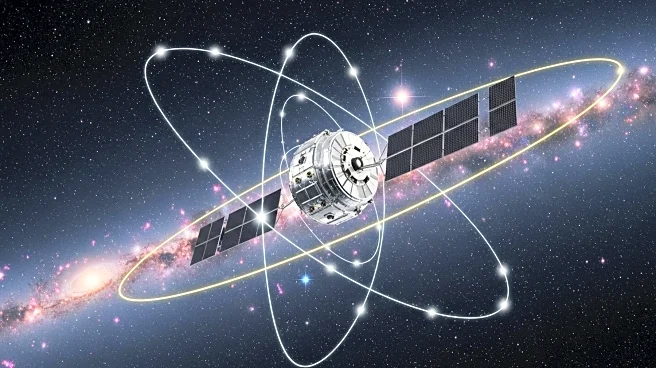What's Happening?
NASA and the China National Space Agency (CNSA) have taken a significant step towards improving communication to prevent potential satellite collisions. For the first time, CNSA contacted NASA regarding an on-orbit collision, suggesting that NASA hold its position while CNSA maneuvers its satellite. This marks a breakthrough in communication between the two agencies, which have historically operated with minimal interaction. The initiative comes at a time when the number of satellites in low-Earth orbit is rapidly increasing, with plans for large megaconstellations from both Chinese companies and Western entities like SpaceX and Amazon. The need for real-time information sharing is becoming critical to manage the growing satellite traffic.
Why It's Important?
The development is crucial as it represents a shift towards more collaborative international space operations, which is essential given the increasing congestion in low-Earth orbit. Effective communication between major space agencies can significantly reduce the risk of satellite collisions, which can lead to costly damages and contribute to space debris. This coordination could pave the way for more comprehensive agreements and protocols that enhance space sustainability. The involvement of commercial satellite operators in these discussions further underscores the importance of cooperation across both public and private sectors to ensure safe and efficient space traffic management.
What's Next?
The next steps involve establishing a framework for consistent and reliable communication between space agencies and commercial operators. Organizations like the International Astronautical Federation and the International Academy of Astronautics may play a role in facilitating these discussions. As the number of satellites continues to grow, particularly with the planned megaconstellations, developing robust communication protocols will be essential. The ongoing dialogue between CNSA and NASA could lead to more formalized agreements that enhance global space traffic management and sustainability.
Beyond the Headlines
This initiative may also influence diplomatic relations between the U.S. and China, as space collaboration can serve as a platform for broader engagement. The Wolf Amendment currently restricts NASA's ability to work with China, but successful coordination in space traffic management could prompt reconsideration of such policies. Additionally, the move towards international cooperation in space could set a precedent for addressing other global challenges, such as climate change and cybersecurity, through collaborative efforts.










